Purdue makes a splash at SC24
Purdue University made an impressive showing at this year’s supercomputing conference, SC24. From offering innovative presentations and workforce development opportunities to receiving major awards, Purdue’s presence at SC24 highlighted why the university is a leader in advanced research, technology, and high-performance computing (HPC).
SC24—short for The International Conference for High-Performance Computing, Networking, Storage, and Analysis 2024—is where higher education, government, and industry come together to collaborate, share, and help grow the HPC community. This year saw a record-breaking 18,000+ attendees descend upon the Georgia World Congress Center in Atlanta, Georgia, where they were able to experience first-hand the innovative ways in which HPC is changing the world. Purdue’s exhibitor booth, hosted by the Rosen Center for Advanced Computing (RCAC), did not disappoint, engaging with a steady stream of attendees who dropped by to speak with our HPC experts, listen to presentations, and participate in demonstrations.
The central theme for 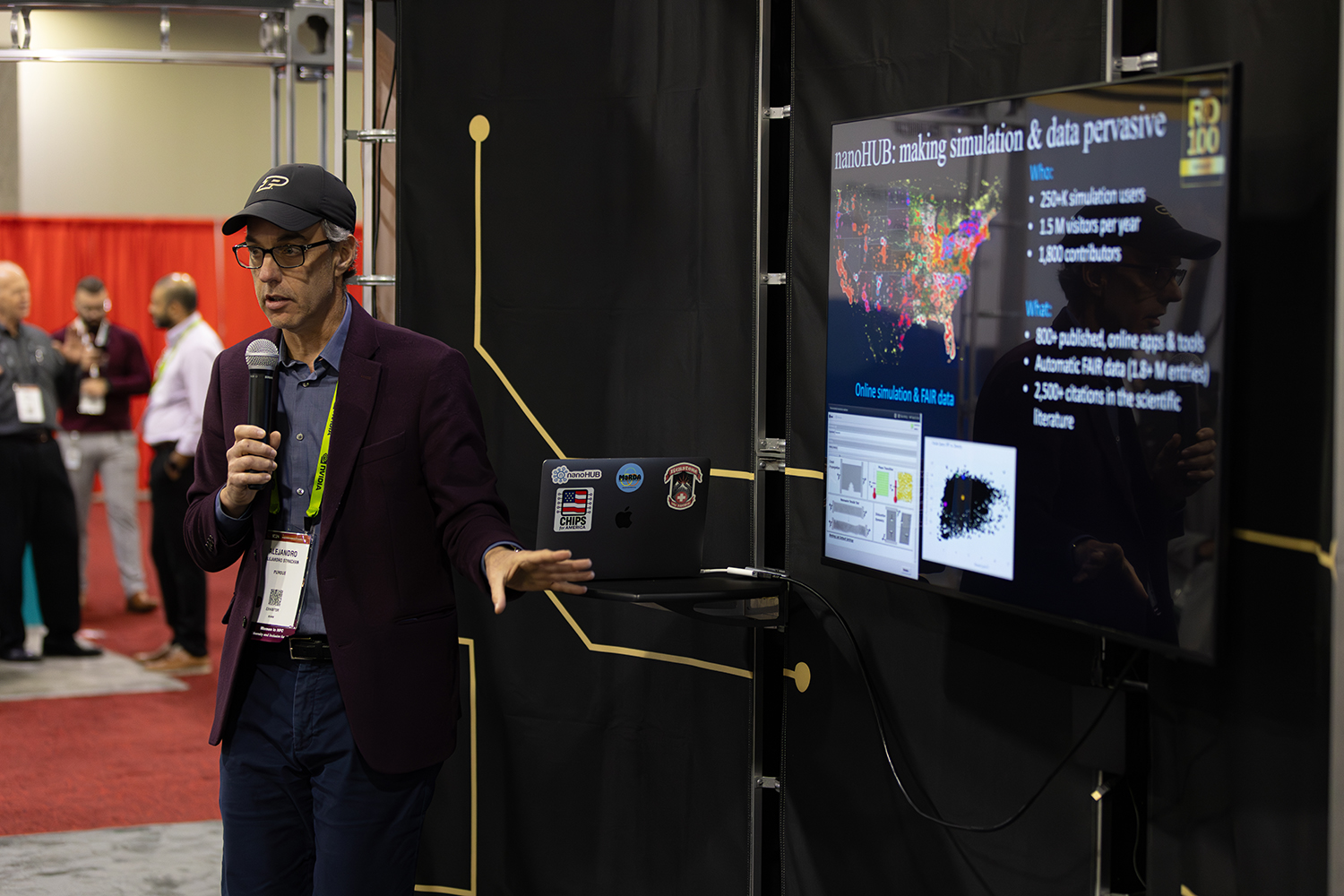 the Purdue booth this year was to promote the Purdue Computes initiative, specifically focusing on Purdue’s Artificial Intelligence (AI) capabilities. To help achieve this goal, Purdue provided the conference with presentations throughout the week, not only from RCAC staff but also from experts within other departments. Dr. Marisol Koslowski, Associate Dean For Global Engineering Programs And Partnerships, and Professor Of Mechanical Engineering, gave an excellent presentation on large-scale simulations of small-scale material deformation mechanisms, while Dr. Alejandro Strachan, Reilly Professor Of Materials Engineering, discussed how researchers can get the most out of large-scale molecular dynamics simulations with AI tools as well as the newly created online platform for everything semiconductors, Chipshub. Dr. Corey Maley, an Associate Professor Of Philosophy, promoted the College of Liberal Arts’s new BA in Artificial Intelligence major and showcased his research on the foundational issues in the philosophy of computation. Rounding out the group was Dr. Aniket Bera, Associate Professor of Computer Science and Director of IDEAS Lab, who gave a presentation titled “From Data to Dynamics: AI in Human Motion Prediction and Analysis.” During his talk, he discussed his collaboration with RCAC’s Envision Center to obtain motion capture data for advancing AI and robotics, as well as his other AI-centered research projects. RCAC staff members also delivered multiple booth presentations and demonstrations throughout the week, covering a variety of AI and HPC projects, including HyperShell, AnvilGPT, and Purdue GenAI Studio.
the Purdue booth this year was to promote the Purdue Computes initiative, specifically focusing on Purdue’s Artificial Intelligence (AI) capabilities. To help achieve this goal, Purdue provided the conference with presentations throughout the week, not only from RCAC staff but also from experts within other departments. Dr. Marisol Koslowski, Associate Dean For Global Engineering Programs And Partnerships, and Professor Of Mechanical Engineering, gave an excellent presentation on large-scale simulations of small-scale material deformation mechanisms, while Dr. Alejandro Strachan, Reilly Professor Of Materials Engineering, discussed how researchers can get the most out of large-scale molecular dynamics simulations with AI tools as well as the newly created online platform for everything semiconductors, Chipshub. Dr. Corey Maley, an Associate Professor Of Philosophy, promoted the College of Liberal Arts’s new BA in Artificial Intelligence major and showcased his research on the foundational issues in the philosophy of computation. Rounding out the group was Dr. Aniket Bera, Associate Professor of Computer Science and Director of IDEAS Lab, who gave a presentation titled “From Data to Dynamics: AI in Human Motion Prediction and Analysis.” During his talk, he discussed his collaboration with RCAC’s Envision Center to obtain motion capture data for advancing AI and robotics, as well as his other AI-centered research projects. RCAC staff members also delivered multiple booth presentations and demonstrations throughout the week, covering a variety of AI and HPC projects, including HyperShell, AnvilGPT, and Purdue GenAI Studio.
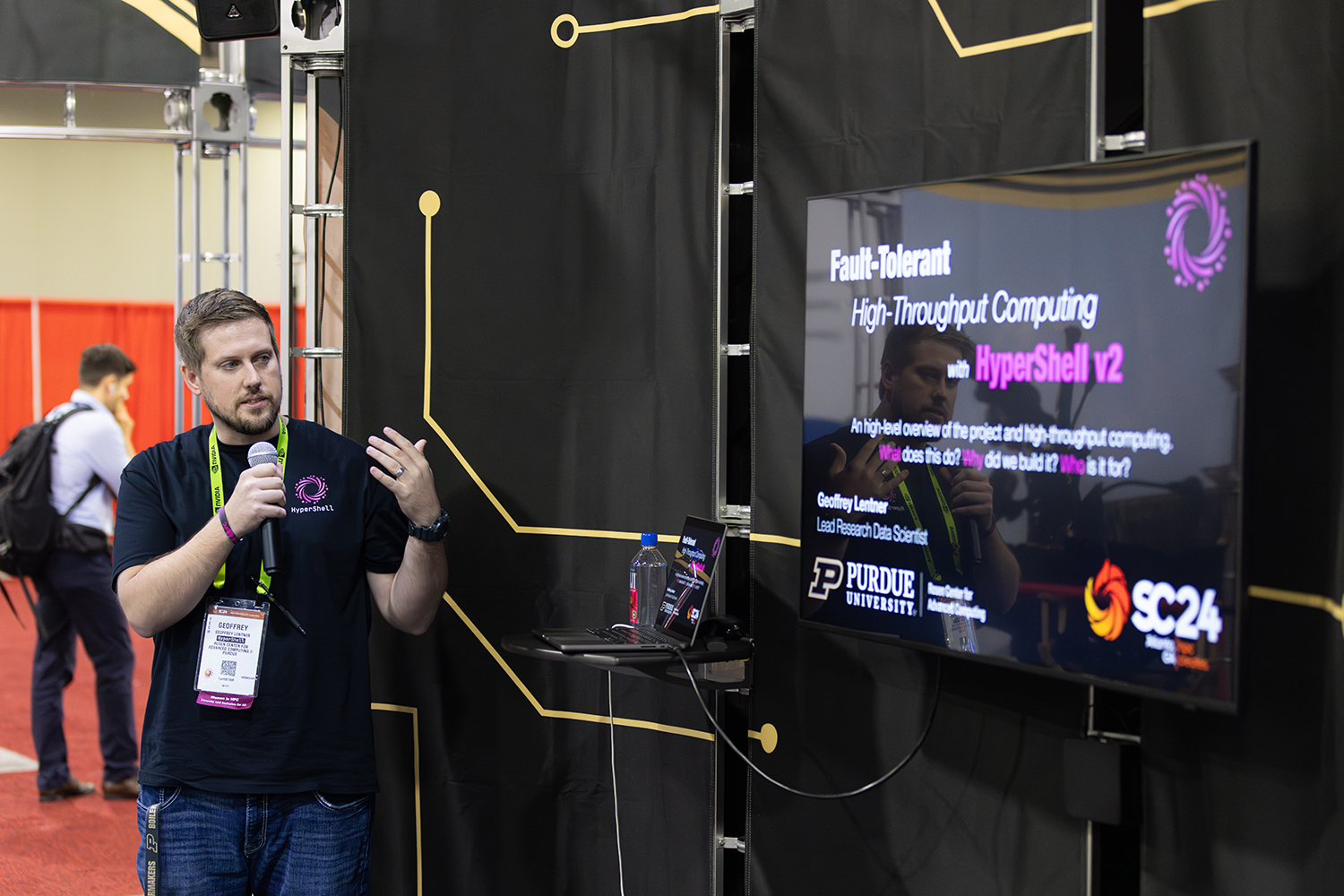
One particularly well-received demonstration was the Envision Center’s showcase of the newly developed Collab XR platform. The Collab XR (XR=extended reality) platform is a shared environment that allows anyone in a headset to view and interact with the same virtual content pieces together, viewed in fully virtual (the entire field of vision is virtual, obscuring all of the real environment, and other participants appear as virtual avatars) or passthrough augmented reality (cameras feed the actual room and people to the headset view, overlaying virtual content to appear to exist in the same space). While demonstrating Collab XR, Purdue’s booth was visited by a team from NASA who were interested in learning more about the platform. The NASA crew included Dr. Nicola Fox, Associate Administrator for the Science Mission Directorate at NASA, who delivered the keynote address for SC24. After getting to experience Collab XR firsthand, the entire team was thoroughly impressed, asking questions of George Takahashi, Lead Visualization Scientist of the Envision Center, and seeing how they could potentially leverage this new technology.
SC24 also proved an excellent venue for allowing RCAC students to shine. Four of this year’s Anvil REU cohort were able to present during multiple sessions at SC24, both at our exhibitor booth and beyond. Anjali Rajesh and Richie Tan gave an overview of their summer Anvil REU project, which involved developing a web dashboard for job accounting and performance metrics on the Anvil supercomputer. Their dashboard gives Anvil users detailed metrics and incorporates advanced data visualization techniques to highlight job distribution without requiring knowledge of how to use command line. Austin Lovell and Philip Wisniewski presented their project as well. The pair created an AI model to accurately predict Anvil job queue wait times. This allows Anvil users to automatically see wait time predictions from the model upon job submission, allowing them to plan for when their job will begin. Aside from gaining presentation experience, the four REU students, along with other students working at RCAC, were able to attend different informational sessions and learn about the latest advances in HPC, as well as network and develop connections with people within the community. Providing students with experiences such as this ties in directly with RCAC’s goal of developing the HPC workforce of the future.
Talks and presentations 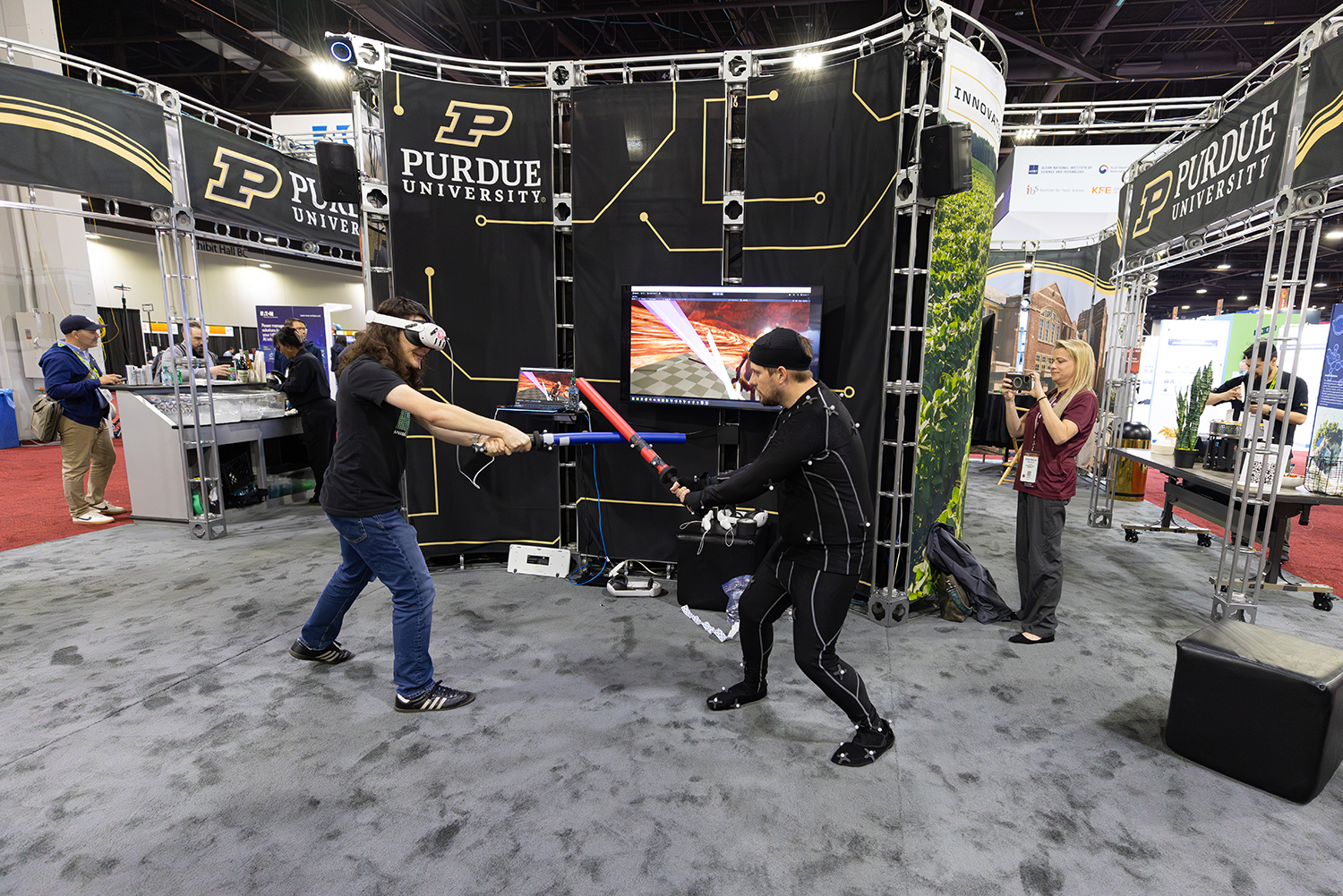 were not the only things Purdue had to offer at SC24. Thanks to the efforts of hardworking—and mostly volunteer—staff members, Purdue supported multiple committees, organizations, and events at the conference, including SCinet, Women in HPC, PEARC, the Early Career Program, the Student Cluster Competition, and the SC24 Job Fair. SC24 also provided the opportunity to connect with and celebrate Purdue alumni attending the conference. The Purdue for Life Foundation graciously hosted Family Night at the Purdue booth, offering food and entertainment for alumni who dropped by. The Envision Center even brought out the motion capture suit during the event, allowing alumni to partake in VR and motion capture games.
were not the only things Purdue had to offer at SC24. Thanks to the efforts of hardworking—and mostly volunteer—staff members, Purdue supported multiple committees, organizations, and events at the conference, including SCinet, Women in HPC, PEARC, the Early Career Program, the Student Cluster Competition, and the SC24 Job Fair. SC24 also provided the opportunity to connect with and celebrate Purdue alumni attending the conference. The Purdue for Life Foundation graciously hosted Family Night at the Purdue booth, offering food and entertainment for alumni who dropped by. The Envision Center even brought out the motion capture suit during the event, allowing alumni to partake in VR and motion capture games.
To cap off the fantastic week for Purdue, the new Top500 list was released at SC24. Purdue University’s newest supercomputing community cluster, Gautschi, debuted at No. 157 of the world’s most powerful supercomputers. Gautschi also ranked as No. 7 among U.S. universities and No. 43 on the Green500 list of the world’s most energy-efficient supercomputers. This is an amazing achievement and a testament to the value of Purdue’s continued investment in HPC.
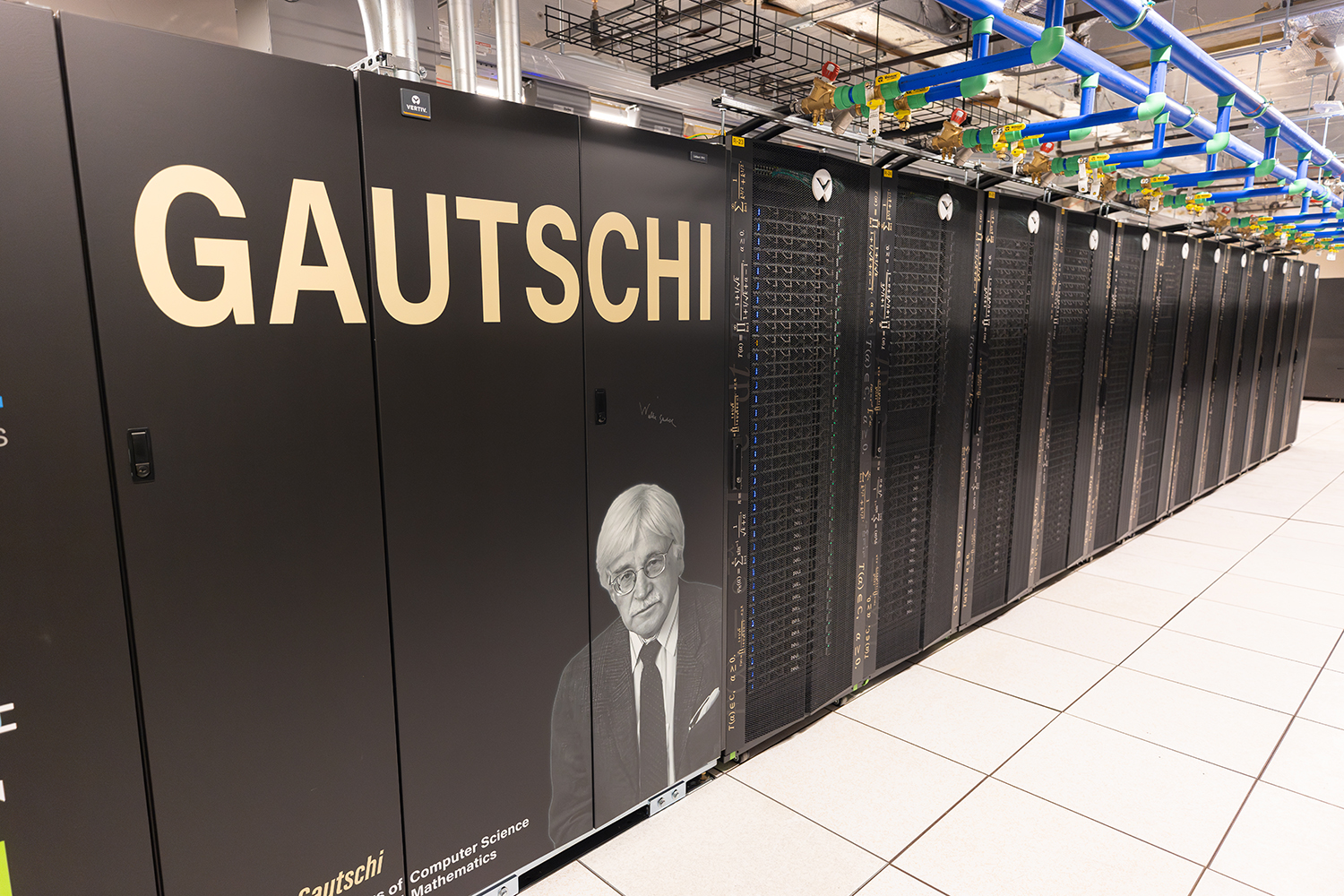
Overall, SC24 was a tremendous success for the university. If you or someone in your department would like to be involved with SC25, please contact rcac-help@purdue.edu.
For more information regarding HPC and how it can help you, please visit our “Why HPC?” page.
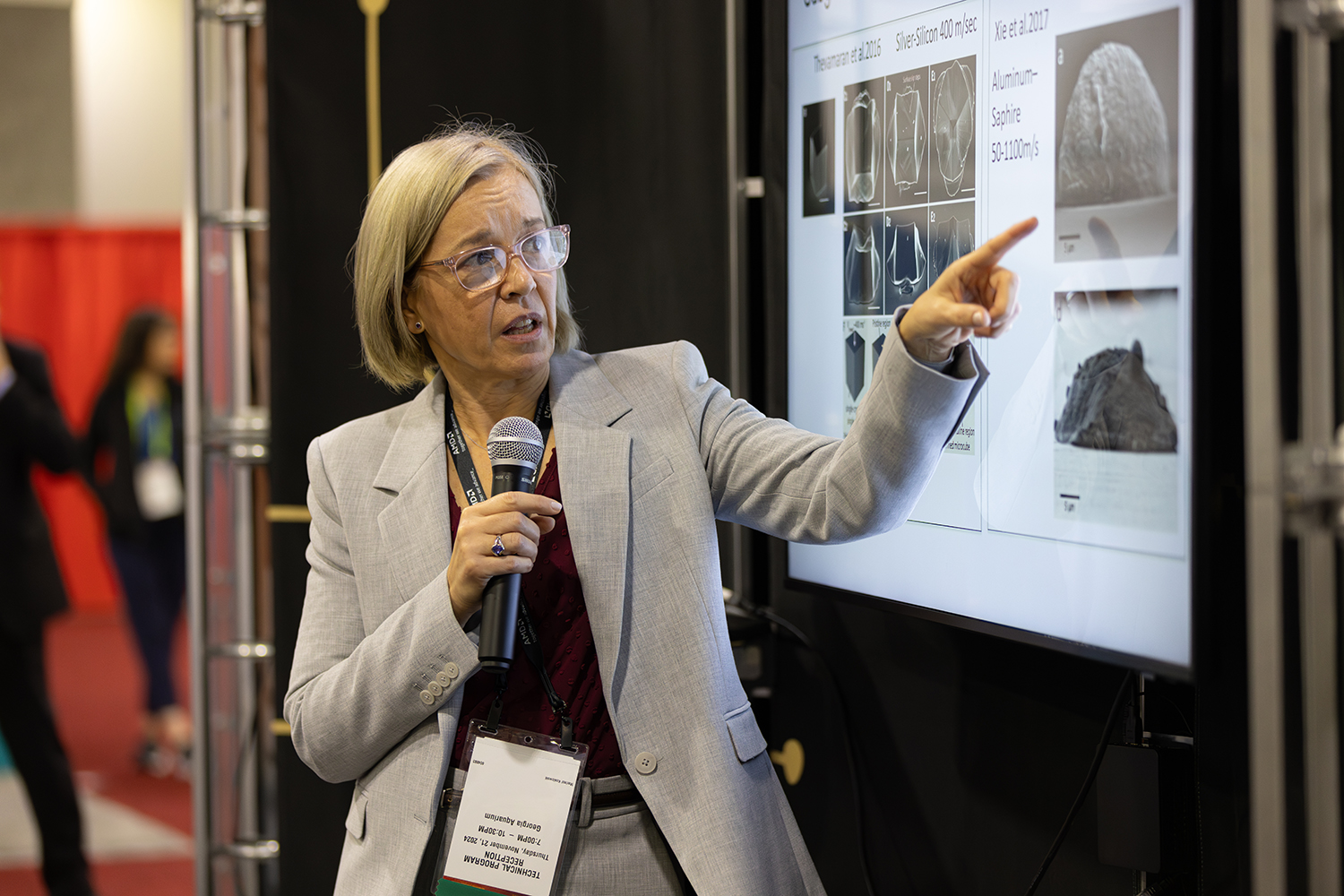
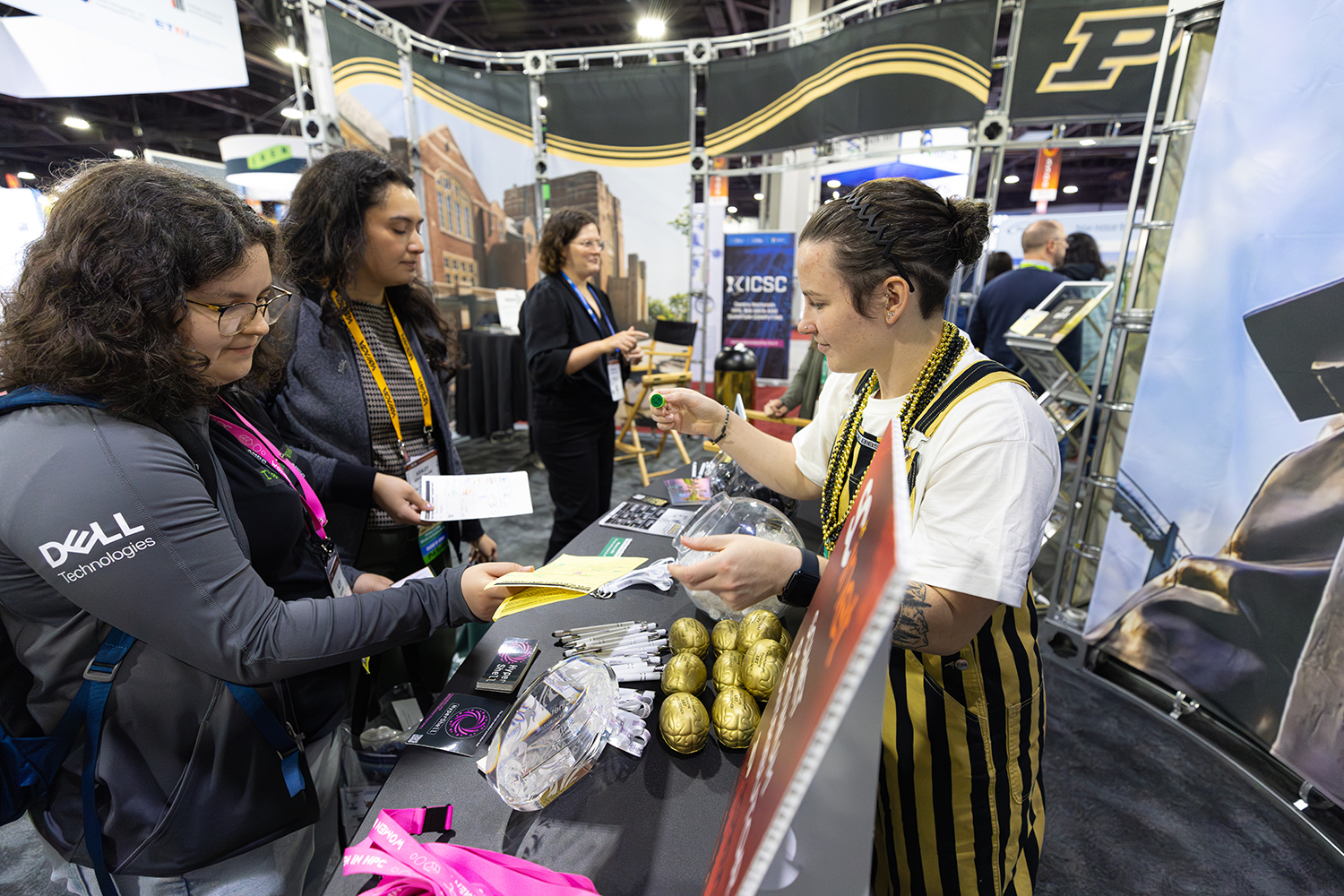
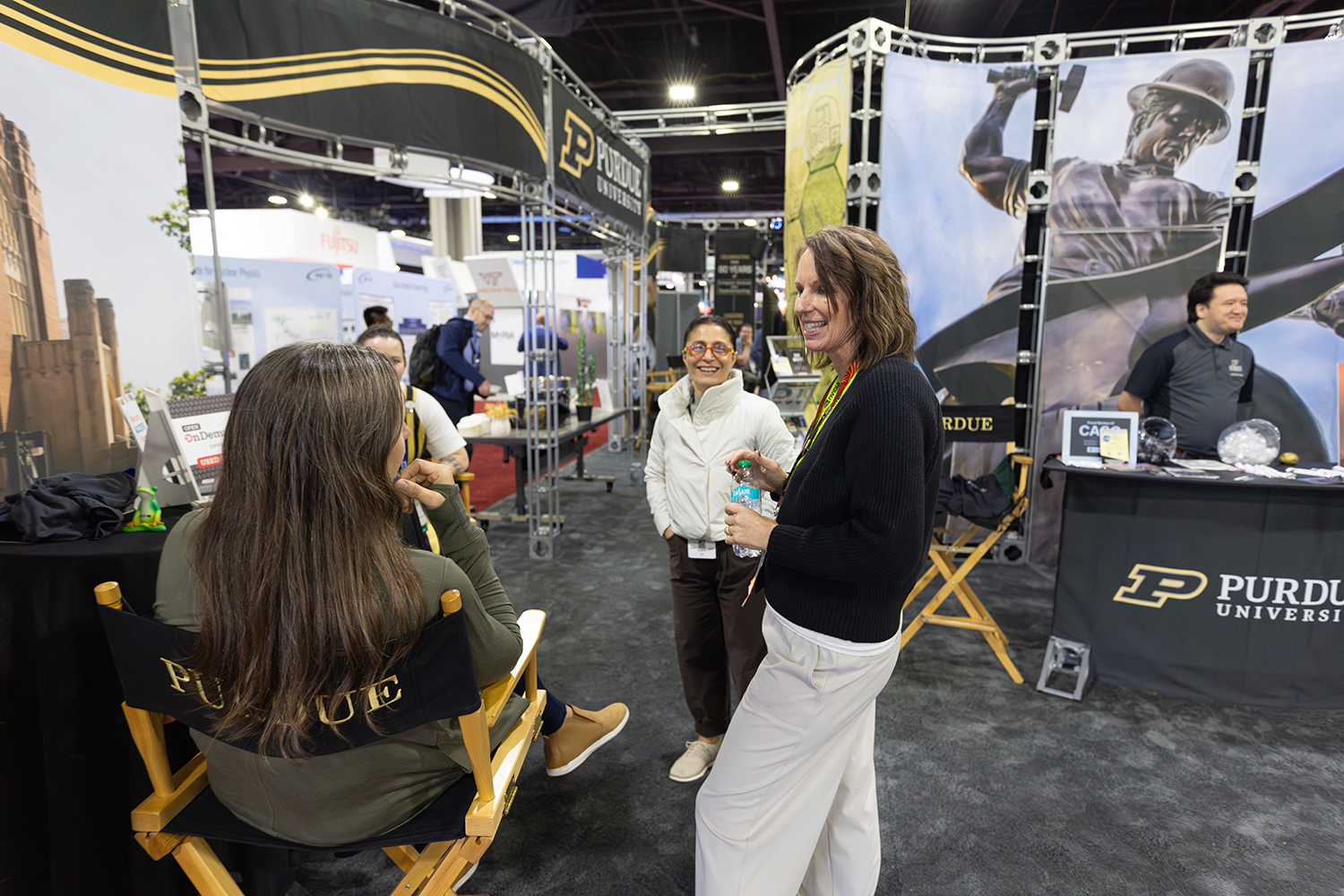
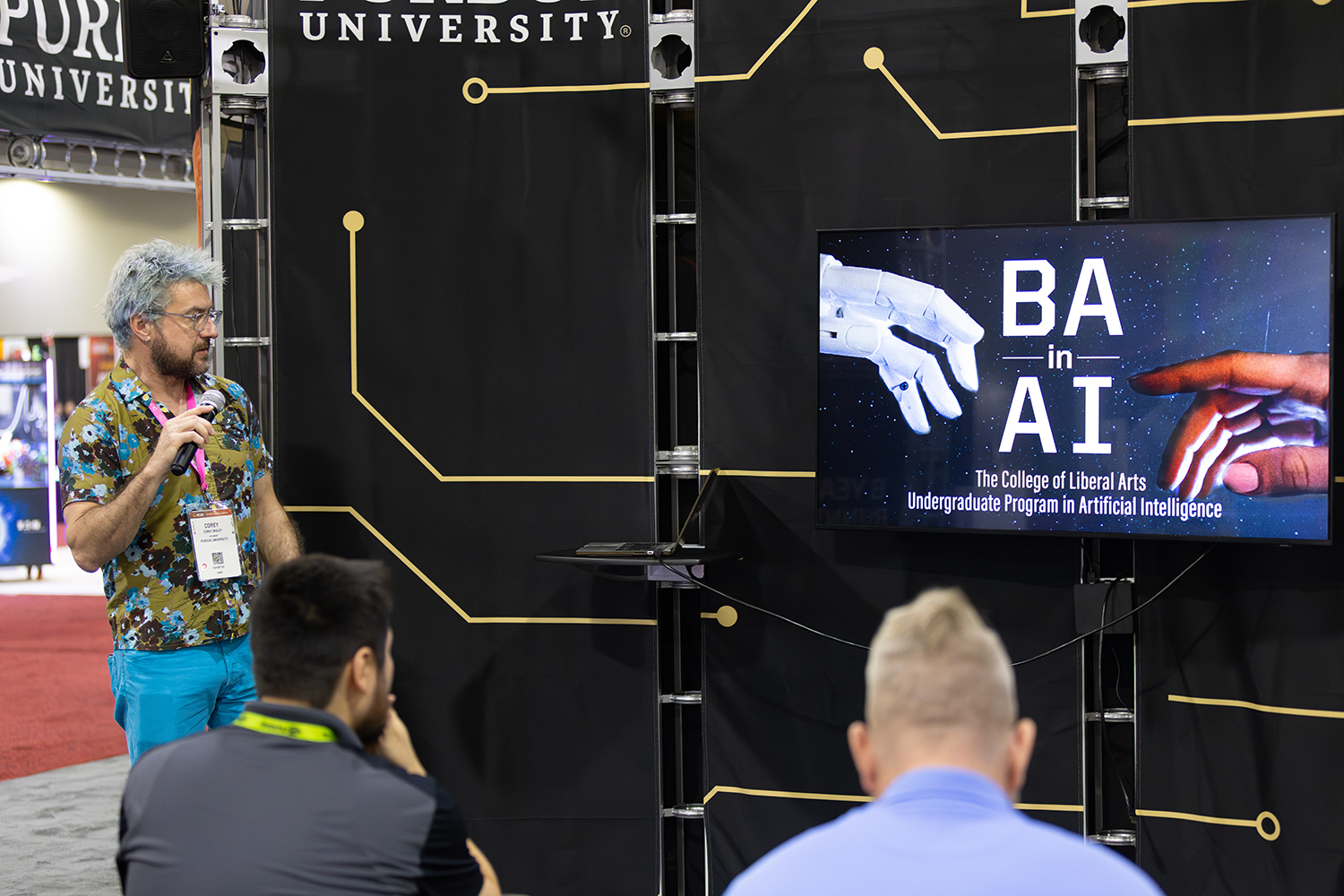
Written by: Jonathan Poole, poole43@purdue.edu
